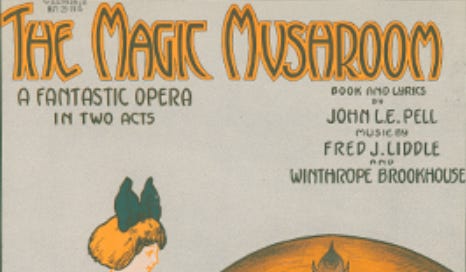A few months ago, while taking an online art class on altered books, the instructor casually mentioned that she volunteered as a transcriber for the U.S. Library of Congress. Wha what?
I’m sure my eyes did that thing they do in cartoons where they leave your skull for a moment before ricocheting back. Why wasn’t I a volunteer transcriber? What did it entail? Was this something I could fit into my life?
I am here to tell you, dear reader, that yes, you too can be a volunteer transcriber in a few easy steps.
1. Go Here and register for a free account. You can transcribe without an account, but you get nerdy perks with a free account, like being the first to hear about what amazing vault of papers need transcribing and you earn the right to add notes to your transcriptions.
2. Read the rules. Other institutions offer volunteer transcription opportunities (more on that later) and each one has nuanced differences in terms of exactly how they want it done.
3. Go into the archives and select something to transcribe! One great thing about this program is when you start a project, you are given only one page to transcribe, so it’s not a huge commitment. They’ve even recently added an AI component that you can use to aid you if you’d like.
The first project I worked on was the Walt Whitman papers. I transcribed a few drafts of his handwritten poems. It was thrilling!
I stuck with this project and ended up transcribing his nurse’s notes from some of his last days in the hospital when he was dying of consumption. I transcribed what he said. What he ate (lots of mutton broth) and what times of the day he was turned on his side to help clear his lungs. It really was thrilling to unearth these papers knowing that my transcription will live on.
Next, I moved to the American Federation of Labor papers. For this project, I mostly transcribed lists of volunteers who came out to protest the Triangle Shirtwaist Factory Fire in 1911, as well as a few letters back and forth from people writing to the factory to try and figure out whether or not their loved one had
been killed in the fire.
Most recently I worked on a new project, Sheet Music of Musical Theater, transcribing sheet music from the 1880’s – 1920’s.
They often have many campaigns going on at once, so pick something that interests you.
Speak a second or third language? Oftentimes they’re looking for someone to translate.
Find it too overwhelming or difficult to read small cursive? Yes, you can enlarge things, but if transcribing feels overwhelming, you can be a reviewer. Each transcribed document gets reviewed by a separate volunteer.
I get so excited each time I receive emails about a new campaign. When I started doing this work, I pledged to transcribe one document (just one page) a day. While I haven’t quite been able to keep up that pace, I’ve transcribed A LOT papers. And I always enjoy the feeling of being a part of history.
Here are some other institutions that offer volunteer transcribing:
Boston Public Library’s Anti-Slavery Manuscripts
New York Public Library’s collection of menus
Feel free to share more opportunities below!









Wow, I had no idea. Sharing this on my newsletter this Friday. Thanks!
This is so cool!!